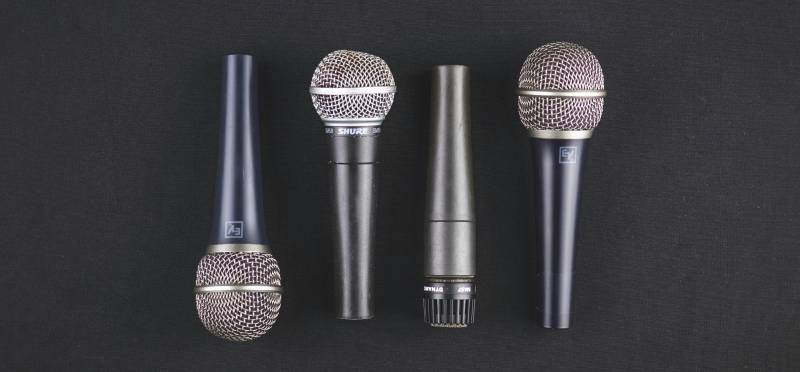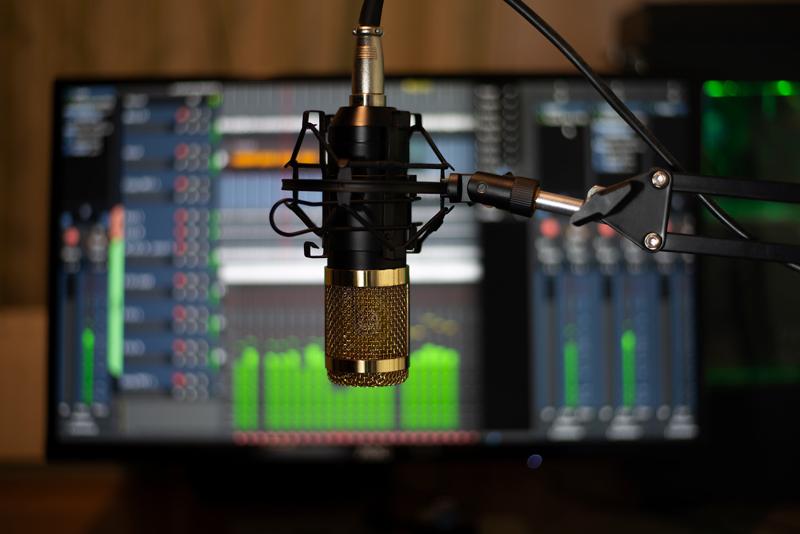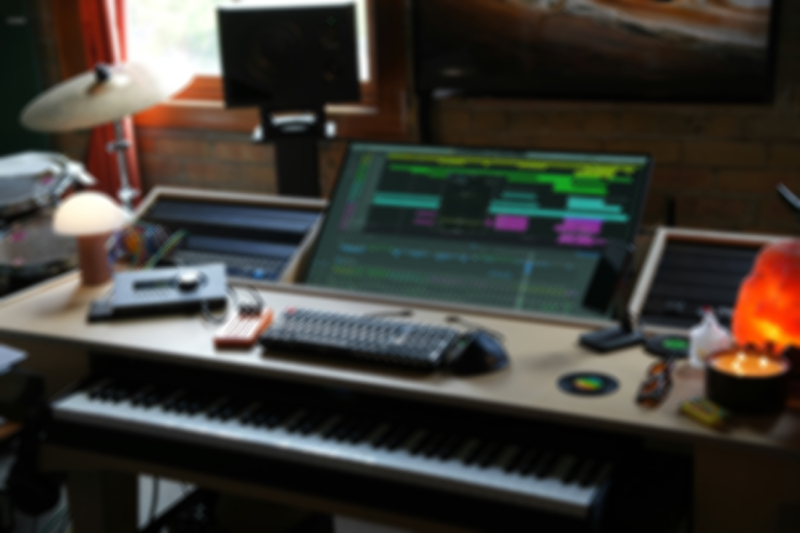A mixing engineer is responsible for creating a final mix (a mixdown) of a musical piece. After the recording is completed, the mixing engineer blends all the tracks together using different processes and effects. Mix engineer is exactly the person who creates a cohesive song where all the parts work perfectly together.
What does a mixing engineer do?
Mixing a song is more of art than it may seem. Similar to painting, with all the experience and understanding of the rules, mixing engineers still have to create a new and unique music artwork each time. Knowing the trends of modern music and the sound quality standards is great, but not enough. So, what does a mixer do? Let’s dive deeper.
Listens
 The first and the biggest part of the work consists of listening. An engineer listens to the track and has to notice general impressions, big mistakes, and also tiny details. They have to have a trained and sharp musical ear to hear the slight differences in pitch, in the sound volume, and to be able to understand what sounds great and what doesn’t. And with all this listening process, mix engineers must not get tired and lose this sharpness of the musical ear, and still be very attentive and devoted to seeing the little things and the little parts of a complex composition they’re working on.
The first and the biggest part of the work consists of listening. An engineer listens to the track and has to notice general impressions, big mistakes, and also tiny details. They have to have a trained and sharp musical ear to hear the slight differences in pitch, in the sound volume, and to be able to understand what sounds great and what doesn’t. And with all this listening process, mix engineers must not get tired and lose this sharpness of the musical ear, and still be very attentive and devoted to seeing the little things and the little parts of a complex composition they’re working on.
Understands
 When listening to the composition, the mixer has to dive deep into the meaning of the song, into its emotions and feelings, and have the idea of how to enhance that and how to make that more expressive and more obvious, more vivid in the song. He has to see, which themes and which lines in a son are the most important, and which should be in the background; what is the whole complex picture of this song and what is its main idea. This is like the work of a sculptor, to be able to shape the track.
When listening to the composition, the mixer has to dive deep into the meaning of the song, into its emotions and feelings, and have the idea of how to enhance that and how to make that more expressive and more obvious, more vivid in the song. He has to see, which themes and which lines in a son are the most important, and which should be in the background; what is the whole complex picture of this song and what is its main idea. This is like the work of a sculptor, to be able to shape the track.
The engineer needs to see the feelings and emotions of the songwriter and be able to understand them even if they don’t coincide with his own feelings and emotions. He has to be able to perceive, understand correctly, and reproduce the idea that was created by the artist. Together with understanding, mixing engineers must also be able to actually express it all correctly using the available audio tools and plugins.
Corrects
 This job is usually done by the mixing engineer’s assistant. After the recording process is completed, there can remain some mistakes or little tiny details that should not be present in the final mix. Using the trained and sharp musical ear, the mixer or the assistant spots those parts and uses the right tools to eliminate those defects. Sometimes an engineer even does it manually, working with certain parts of the recording. It also can be pitch correction of a vocal part or some instrumental track.
This job is usually done by the mixing engineer’s assistant. After the recording process is completed, there can remain some mistakes or little tiny details that should not be present in the final mix. Using the trained and sharp musical ear, the mixer or the assistant spots those parts and uses the right tools to eliminate those defects. Sometimes an engineer even does it manually, working with certain parts of the recording. It also can be pitch correction of a vocal part or some instrumental track.
On a bigger scale, some tracks like guitar part or kick, snare, or other instrument parts may catch mistakes on the recording level. Maybe the whole recording is somehow of low quality, and the mixer has to notice it and replace or correct it if possible.
Of course, we know, that recording mistakes are much better to be avoided on the recording level, and sometimes, mixing engineers can not help. But ther are mistakes that can be dealt with while mixing and this is what a good mix engineer will do.
Creates
 Mixing engineer understands what the track should sound like, and shapes it accordingly to receive the desired effect. The engineer determines how the track should sound, how dynamic it must be, what impression it brings, what emotion it conveys. Of course, vocals, instrumental parts, and the whole song idea have their impact, and how they all perform has a tremendous effect. However, the mixer brings to the song even more emotions, more atmosphere, more additional features, and beauty. This is the person who actually takes all the parts and makes the mix sound like one song.
Mixing engineer understands what the track should sound like, and shapes it accordingly to receive the desired effect. The engineer determines how the track should sound, how dynamic it must be, what impression it brings, what emotion it conveys. Of course, vocals, instrumental parts, and the whole song idea have their impact, and how they all perform has a tremendous effect. However, the mixer brings to the song even more emotions, more atmosphere, more additional features, and beauty. This is the person who actually takes all the parts and makes the mix sound like one song.
The result should be an industry-level and highest-quality sound. All the elements are seamlessly united together like pieces of a puzzle, where you can not see them anymore as individuals, but as a complete picture, something really whole, something that by itself is a masterpiece
How one becomes a professional mixing engineer
 Of course, one has to study mixing, but only years of practice and genuine interest in the job can educate a professional audio engineer. This work requires having a passion for music in general, that’s why many great mixing engineers and producers own huge record collections.
Of course, one has to study mixing, but only years of practice and genuine interest in the job can educate a professional audio engineer. This work requires having a passion for music in general, that’s why many great mixing engineers and producers own huge record collections.
And then tons of listening. Professional mixing engineers listen to music and learn from it. Music becomes his or her university, professor, and textbook. With studying and experience, a professional sound engineer learns how to understand sound and how to implement mixing ideas using available tools and gear.
How many hours does mixing engineer work?
 It all depends on the kind of work. Listening to a pretty loud mix is a dangerous task and to preserve good musical ears this can be done for no more than four hours a day.
It all depends on the kind of work. Listening to a pretty loud mix is a dangerous task and to preserve good musical ears this can be done for no more than four hours a day.
However, if the engineer can work mixing at a medium volume level, longer hours can be allowed.
Also, during the day, mixing engineers have to do some other work with sound files and multitracks that doesn’t require listening to loud music. Of course, they can spend as much time on this type of work as they want.
The skills mixing engineers have
 Mixing engineers usually have a vast range of skills. They may have a background in music, and know quite a bit of everything in the field, starting from recording up to music production and distribution.
Mixing engineers usually have a vast range of skills. They may have a background in music, and know quite a bit of everything in the field, starting from recording up to music production and distribution.
Mixing engineers may have expertise in the following areas:
- Music theory. Educated mixing engineers have a solid understanding of music theory and have a trained musical ear. They can distinguish different harmonies and chords and know how a music piece is put together.
- Recording. They usually know recording pretty well, have skills in recording session musicians and know the best recording equipment. At the beginning of their career, many of them have worked as recording engineers.
- Mixing in DAWs. Mixing engineers must know different DAWs, software, plug-ins and effects that are used for mixing music. They know well different audio formats and codecs as well.
- Analog gear. Professionals can easily work with analog consoles and perform analog mixing as well.
- Speaker set-ups. They know different speakers and playback devices. How to choose professional monitors, their qualities and set-ups.
- Modern music and genres. Audio engineers should be well versed in the modern music and different music genres and trends. They should know up-to-date music quality standards of different genres. Their finger should be on the pulse of the modern music trends to watch for the latest news and technologies.
- Physics of sound waves. This could sound strange, but mixing is all about the interaction of different sound waves within a recording, so your mixing engineer probably knows a lot more about the properties of sound waves than you do. They understand why you need to treat a studio for sound properly and how to do it. They also learn some physics to understand how analog gear and monitors work, and what their settings mean. A good audio engineer, of course.
- Streaming and distribution. During their work, mixing engineers learn a lot about streaming platforms and song distribution in general. Each popular streaming service has slightly different requirements for music, and especially if a mixer does mastering as well, he or she knows these requirements and specifics. Professionals know and have worked with record labels and can advise you on how to get signed.
- Mastering. Quite often, a mixing engineer is a mastering engineer as well. They should know different requirements for masters and can make a perfect master record for each streaming platform.
- Music production. Usually, mixing engineers can create music themselves if needed in their studio.
Want a free test mix of your track?
We get it.
That’s why we’ll do a full hybrid (analog + digital) mix of your song —
for free.
No upfront payment. No risk.
You only pay if you’re blown away. And if you are, we’ll slash 40% off the final price.
Nobody else in mixing and mastering offers this.
Why?
Because most studios say yes to every project. We don’t. We only mix what we’re excited about — so send us your best track. If we like it, we’ll mix it like it’s going to the Grammys.
👉 Just drop your name and email to get started.
Tools mixing engineers use
 Mixing engineers can use analog gear and/or digital tools for mixing a track in their studio to produce the desired effect of the sound. Digital ( or in the box) mixing can be used in combination with analog mixing, in this case, the process will be called hybrid mixing.
Mixing engineers can use analog gear and/or digital tools for mixing a track in their studio to produce the desired effect of the sound. Digital ( or in the box) mixing can be used in combination with analog mixing, in this case, the process will be called hybrid mixing.
The important editing elements for in-the-box and hybrid mixing are the following plugins:
- Different equalizers and filters, panning
- delay-based plugins: reverb, delay, flanger, and others
- different compressors, expanders, gates
- saturation, distortion, fader, clipper
- de-esser, de-noise, de-click
- autotune, Melodyne
- stereo expanders
- and others.
Each mixing engineer has their own favorite choice of plugins and way to use them.
The goals of working with mixing engineer
A mixing engineer aims to create a wonderful music composition. But what are the important elements and steps of the mixing process, and how is this achievable practically?
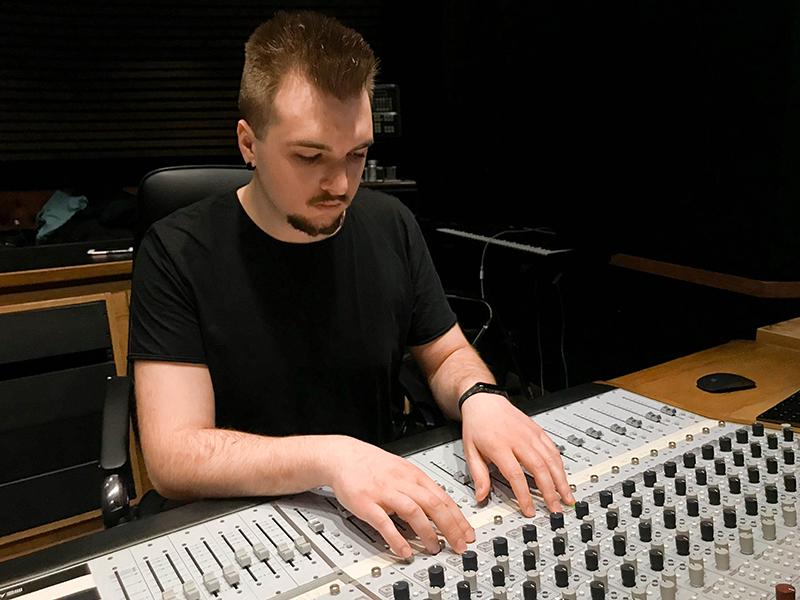 Here are three main goals:
Here are three main goals:
#1 – Correction. They may need to correct some mistakes in the tracks:
- perform pitch correction
- remove unwanted sounds and noises
- correct instruments and replace whole stems if needed
#2 – Eliminating problems. There are certain problems a mixing engineer has to eliminate in a track in the first place:
- mess in the low end
- sounds masking each other
- clashing frequencies
- and others
#3 – Creating beauty. Aiming to create beautiful music, mixing engineers can do the following:
- add various effects and processes like reverb, compression, and others
- design stereo image
- highlight the groove
- Emphasize certain instruments or voices during certain periods of time, create the expressiveness and emotion of the song
- Preserves the needed dynamic range
- Balancing the mix
This complex and multilevel process of mixing in the hands of a professional engineer will result in a clear, cohesive, and expressive song. This is how a future hit is born.
How a mixing engineer can help you
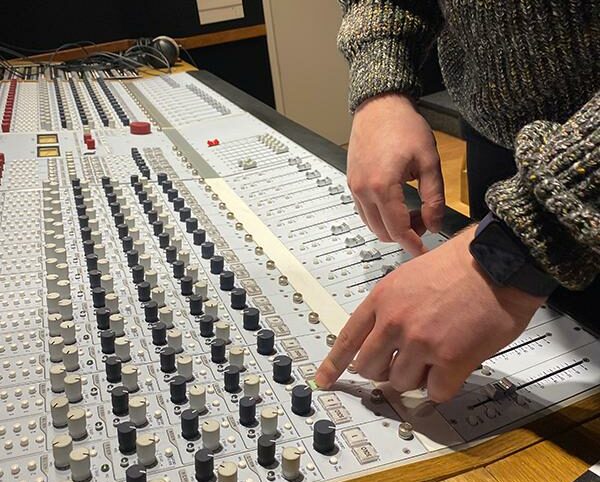 Of course, artists as a rule take a very active role in the whole process of audio production and oversee the editing and mixing of their songs. Some artists mix their music themselves, but to reach that level, you need to be not only a talented artist but also a professional mixing engineer at the same time. You will have to learn lots of important elements and technical details of this job. Do you have months of your life to spare for training and perfecting your mixing skills? Probably not.
Of course, artists as a rule take a very active role in the whole process of audio production and oversee the editing and mixing of their songs. Some artists mix their music themselves, but to reach that level, you need to be not only a talented artist but also a professional mixing engineer at the same time. You will have to learn lots of important elements and technical details of this job. Do you have months of your life to spare for training and perfecting your mixing skills? Probably not.
Do I need to use the services of a mixing engineer?
Yes, you definitely will benefit from using the services of a professional. To compete in the life of music today, you need to mix and master your songs according to all the modern quality standards. And only professional mixing engineers can do this.
At the same time, teaming up with a professional audio engineer can give an instant boost to your career. Receiving high-quality songs that can immediately compete and stand out in the playlists, and being able to quickly create a competitive portfolio, can tremendously help you grow your popularity and get signed by a record label.
What you can get in addition to mixing
Besides the standard mixing process, your audio engineer may be able to help you with recording engineering and other music production questions:
- Advice on how to create a recording with the highest quality, and how you can improve your tracks in the future.
- Create a radio edit for your recording and other alternative mixes
- Do different add-ons to mixing like pitch corrections, stem replacement, and other
By the way, a mixing engineer can be a mastering engineer also, which would be very helpful, you can order mixing and mastering as a bundle deal and it’ll be even cheaper.
Our online mixing and mastering studio Major Mixing offers a bundle deal for mixing and mastering. It’s a wonderful chance to quickly receive a high-quality, industry-level master record, perfect and ready for distribution.
Read the article – How to Choose Mixing Engineer?
What will your online collaboration with a mix engineer look like
After you find an audio engineer who you can trust with your songs, you will send your multitrack to them for mixing.
Don’t forget to add reference tracks, sample mix, and your comments. Remember, your mixing engineer is not a mind reader, if you have any particular expectations about how your mixdown should sound, tell your mixing engineer about them.
How to send stems to a mixing engineer
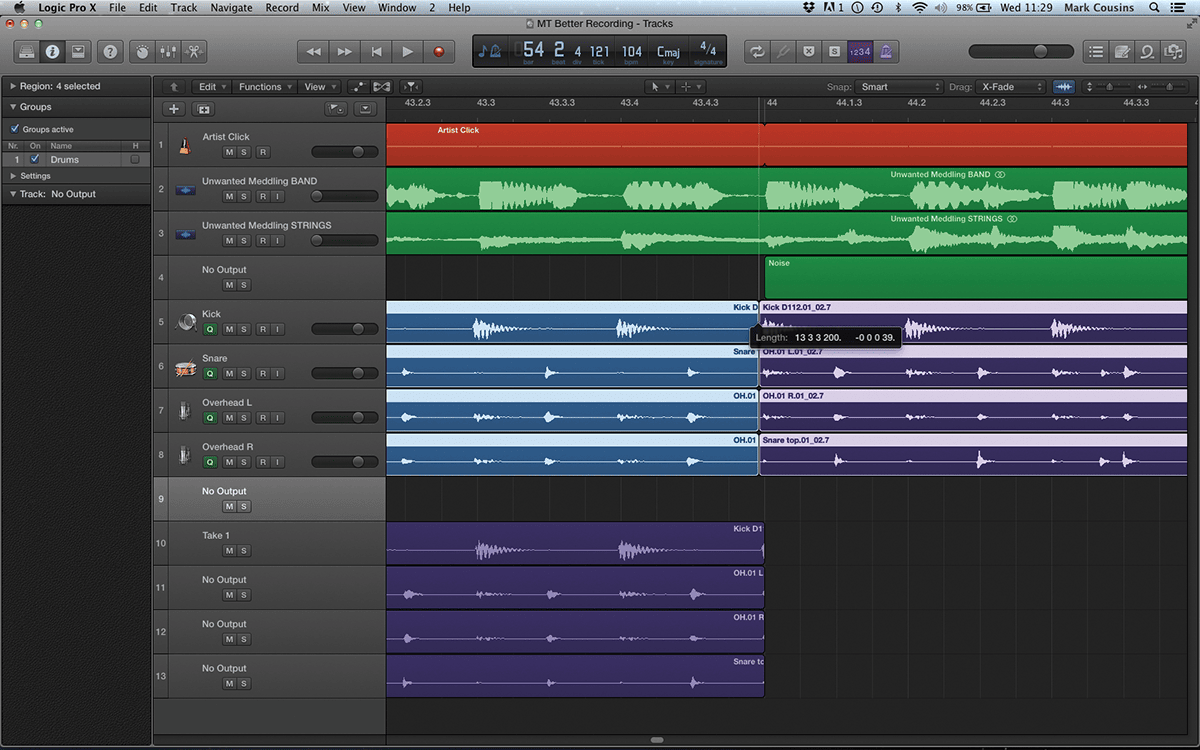 You need to be careful preparing your recording for sending. Make sure you include everything correctly and your tracks are properly named.
You need to be careful preparing your recording for sending. Make sure you include everything correctly and your tracks are properly named.
The steps for preparing and sending your multitrack:
- Export (render) tracks or stems from your DAW correctly
- Check if they all are named properly (the name of each track should contain enough information to understand what instrument and what kind of track it is)
- The tracks must have the required bit depth and sample rate
- After the export, send these tracks again to a new project to see if you have it all right
- Pack the tracks and send them to your mixing engineer through the preferred file transfer system
For the instructions on how to export your tracks from different kinds of DAWs, see our blog posts and youtube videos:
How to export multitrack in Pro Tools
How to Export Multitrack in Logic X
How to Export Multitrack in Ableton
How to Export Multitrack in GarageBand
How to Export Multitrack in FL Studio
How to Export Multitrack in Cubase
How to Export Multitrack in Reaper
On our Major Mixing website, the process of sending files for mixing is very simple and easy. You will be able to upload your project directly in the order window. And there you also can see the total price without any hidden costs. You also may choose available add-ons that you need, leave links to the reference tracks and your comments. So our studio has a privilege in this case, it’s all in one place and very convenient to use.
What should a mixing engineer send back to you?
As a result of mixing, generally, you receive a final mix, an audio file which is a well-balanced stereo file with original sample rate and good bit depth.
But in addition, you may also ask for:
- Mix in the form of multitrack
- Alternative mixes like radio edit, instrumental version, or other
- A master record also, if you were allowed to order mixing and mastering together
For example, from our Major Mixing studio, our customers can receive high-quality mixing and professional mastering together within just three days. So if you work with us, you don’t need to search for another audio mastering engineer. We can do general mastering, and also mastering for a particular streaming platform like iTunes to Spotify.
How to recognize if the mixing engineer did a good job
You need to listen closely to the mix. How do the vocals and individual recorded instruments sound? Carefully compare the mix with the reference tracks.
Remember, before comparing you have to normalize the volume levels, make sure that your recording is the same volume as the reference track. Your reference track most probably is already mastered, and your mix is not. Subconsciously, we always feel that a louder mix is better. To remove this bias, make sure the tracks you are comparing are of similar volume.
Best mixing engineer online
 We obviously can not say that we are the best mixing and mastering studio in the world, there are famous studios with major label credits. But honestly, among the available online options, we can very well compete and proudly say that we do provide one of the best online options for you!
We obviously can not say that we are the best mixing and mastering studio in the world, there are famous studios with major label credits. But honestly, among the available online options, we can very well compete and proudly say that we do provide one of the best online options for you!
Each member of our Major Mixing mixing and mastering studio is a professional with many years of experience. Each of us has worked on big and successful projects and has mixed and mastered hundreds of records for successful musicians.
We have all the advantages of a professional mixing and mastering studio:
- Knowledge&Experience – all our engineers are highly experienced in working with big commercial projects.
- Industry-level product – we know all the requirements of modern music and mix the songs for our customers according to all the standards in our high-tech studio.
- Almost every genre! – within the last ten years we have worked closely with artists of almost every genre. We are equally professional in mixing hip hop and rock, orchestral music and pop songs. We work with many styles of music, know their specifics, and love to create mixes in each of them.
- Price – our prices depend on the types of services you need, but for mixing and mastering bundle we have a very appealing offer.
- Reviews – we have worked with thousands of artists and have excellent reviews
- Samples&examples – you can check out our before and after samples on our website, and listen to samples of the songs we mixed on our social media channels.
- Communication – We have great customer support, free revisions, 3 days turnaround time!
 You can judge also by the fact that our studio is on the Apple Digital Master provider list, and we can professionally create a master record for you to be released on iTunes. Your song will be able to receive Apple Digital Master badge because of our highest quality of mastering.
You can judge also by the fact that our studio is on the Apple Digital Master provider list, and we can professionally create a master record for you to be released on iTunes. Your song will be able to receive Apple Digital Master badge because of our highest quality of mastering.
We also create 3D sound mixes in Dolby Atmos, and our customers can follow the celebrities in releasing their songs in this awesome surround sound format on Apple Music.
Many artists who start working with us successfully sign contracts with record labels and grow their careers.
Let us help you take the next step in your career! We’ll mix your song, and you’ll see for yourself.
Contact us, we are always happy to help you.







